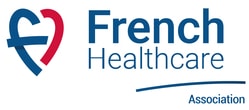Webinar: Santé en entreprise (SEE) is organizing a webinar on Tuesday, March 31, 2020 at 11:00 a.m. (CET) on the theme: COVID Pandemic: is there still time to act in Africa?
With :
- Doctor Michel Yao, WHO Director of Health Emergency Programs in Africa
- A representative of the Ministry of Health of Senegal
- Souleymane Soro, President of the Ivorian Human Resources Network of Côte d’Ivoire
To register: https://app.livestorm.co/p/c4766026-a37d-444c-ac2a-6eba4d5e1f71
Preparing for the management of health crises: the private sector is committed
Until recently relatively unaffected by the coronavirus, Africa has seen an increase in the number of cases and deaths. The epidemic is advancing on the continent which is preparing to face a health crisis, which the WHO officially declared since March 11, 2020 the transition to the stage of pandemic.
While the first measures, ranging from closing the borders to complete containment, are aimed at reducing the spread of the virus and protecting populations, all stakeholders also fear the impact of the pandemic on economies.
The United Nations Economic Commission for Africa (ECA) predicts that the coronavirus pandemic could severely affect economic growth on the continent. Already stagnant, it should fall to 1.8% instead of 3.2% in 2020, mainly due to the interruption of trade relations. The recession would translate into an estimated $ 65 billion in lost revenue for oil-exporting countries.
Several international initiatives have recently been launched in the health sector in an attempt to reduce the impact of the pandemic. This is the case of the Global Fund to Fight AIDS, Tuberculosis and Malaria, the World Health Organization (WHO) in partnership with the United Nations Foundation, the World Bank, as well as patrons such as the Bill & Melinda Gates Foundation or the Jack Ma Foundation, which release tens of billions of dollars to help Africa prepare for the response. These emergency funds are intended to finance the training of health professionals, laboratory capacity building, awareness-raising actions, the purchase of hygiene kits, masks, screening tests which are currently lacking in the field.
We must act quickly because fragile and stressed health systems are likely to be quickly overwhelmed if the number of patients increases.
Companies, concerned on the front line given the already visible economic and social consequences of this health crisis, are vectors of solutions to raise awareness and protect their employees, their families, subcontractors, and local populations.
In this sense, the SEE / B4GH engagement platform has launched a call to action and is working with a group of partners (*) on an innovation project that will be deployed in four countries: Côte d’Ivoire, Cameroon, Guinea-Conakry, Senegal.
Concretely, it is a question of helping these countries:
- use new technologies to raise awareness of barrier actions and detect symptoms of COVID-19 infection.
- to train local teams of health professionals in good screening and disease management practices.
- to equip them with connected teleconsultation cases so that they are able to carry out multi-disease screening including the rapid COVID-19 test.
- to refer suspected cases, if necessary, to confirmation and medical management.
- to remotely monitor patients with the digital solutions available.
- to ensure the continuity of programs in the fight against malaria, tuberculosis and HIV.
One of the common objectives must be to contribute to strengthening local health ecosystems as well as supporting supply chains in order to minimize the deleterious effects of health crises on other essential actions to fight endemics such as malaria, tuberculosis, HIV, viral hepatitis, diabetes and hypertension.
As the episode of Ebola between 2014 and 2016 showed, the number of deaths due to the cessation of programs to manage these major endemics, could ultimately be much higher than that linked to the Coronavirus.
This initiative is supported by the French Council of Investors in Africa, French Healthcare, MEDEF International and LEEM.
We collectively have the will, the expertise, the solutions and the networks of actors on the ground to help countries respond to the COVID-19 pandemic while ensuring the continuity of other essential health programs.
By pooling our efforts, collaborating with health authorities and co-investing with donors, everyone can contribute effectively to the level of their means to mobilize resources to accelerate the movement: it must be done here and now, in a coordinated way wherever we can act.
In the medium term, it will be a question of taking up another challenge: integrating in a more systematic way into health programs the question of preparing for health crises as well as that of managing their economic and social impacts.
(*) Associated partners: AlloDocteurs.africa, CERBA Healthcare, GILEAD, QIAGEN, SD Biosensor, TC4A, ORANGE, SOCIETE GENERALE, SUNU
Erick Maville
General Manager of the Association Santé en Entreprise (SEE)
President of the Health Commission of the French Council of Investors in Africa (CIAN)
